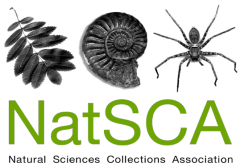Curatorial Assistant II
Closing Date: None Stated
Duties & Responsibilities:
This position supports the NSF-funded, Thematic Collections Networks (TCN) project awarded to digitize the MCZ's fossil insect collection, with more than 30,000 catalogued specimens. The Curatorial Assistant (CA) will assist with taking photographs of fossil insect specimens (both rock compressions/impressions and amber inclusions) and obtaining stacked images through specialized software. Once the CA has become familiar with the collection's unique material, routine rough (pre)identification of specimens will be expected. The CA will also assist with databasing and labeling of fossil insect specimens. Assist with basic curation of damaged amber pieces to make the inclusions within them photographable (polishing of cracked surfaces, restoration with synthetic resin). Other duties as required.
Basic Qualifications:
College courses in biology or museum studies. At least one year of experience working with PC computers.
Additional Qualifications:
One to two years of collections-related experience preferred. Knowledge of collection databases and programs preferred. Strong interest in natural history. Ability to work independently and with a team.
Additional Information:
This is a two-year term position ending approximately 8/31/2016 with the possibility of renewal.
The Museum of Comparative Zoology (MCZ) at Harvard University is a center for research and education focused on the comparative relationships of animal life.
The MCZ was founded in 1859 by an act, signed into law, of the Commonwealth of Massachusetts primarily through the efforts of Louis Agassiz, a brilliant lecturer and scholar from Switzerland. The museum established and served as a training ground for professional zoologists and influenced many budding US museums through this new generation.
Research at the MCZ continues to follow Agassiz's vision to illuminate the structures of living things, their natural classification and relationship with their surroundings, while remaining a leading institution for modern zoological research. The present-day MCZ collections are comprised of approximately 21-million extant and fossil invertebrate and vertebrate specimens, which continue to be a focus of research and teaching for MCZ, Harvard and outside students and researchers.
